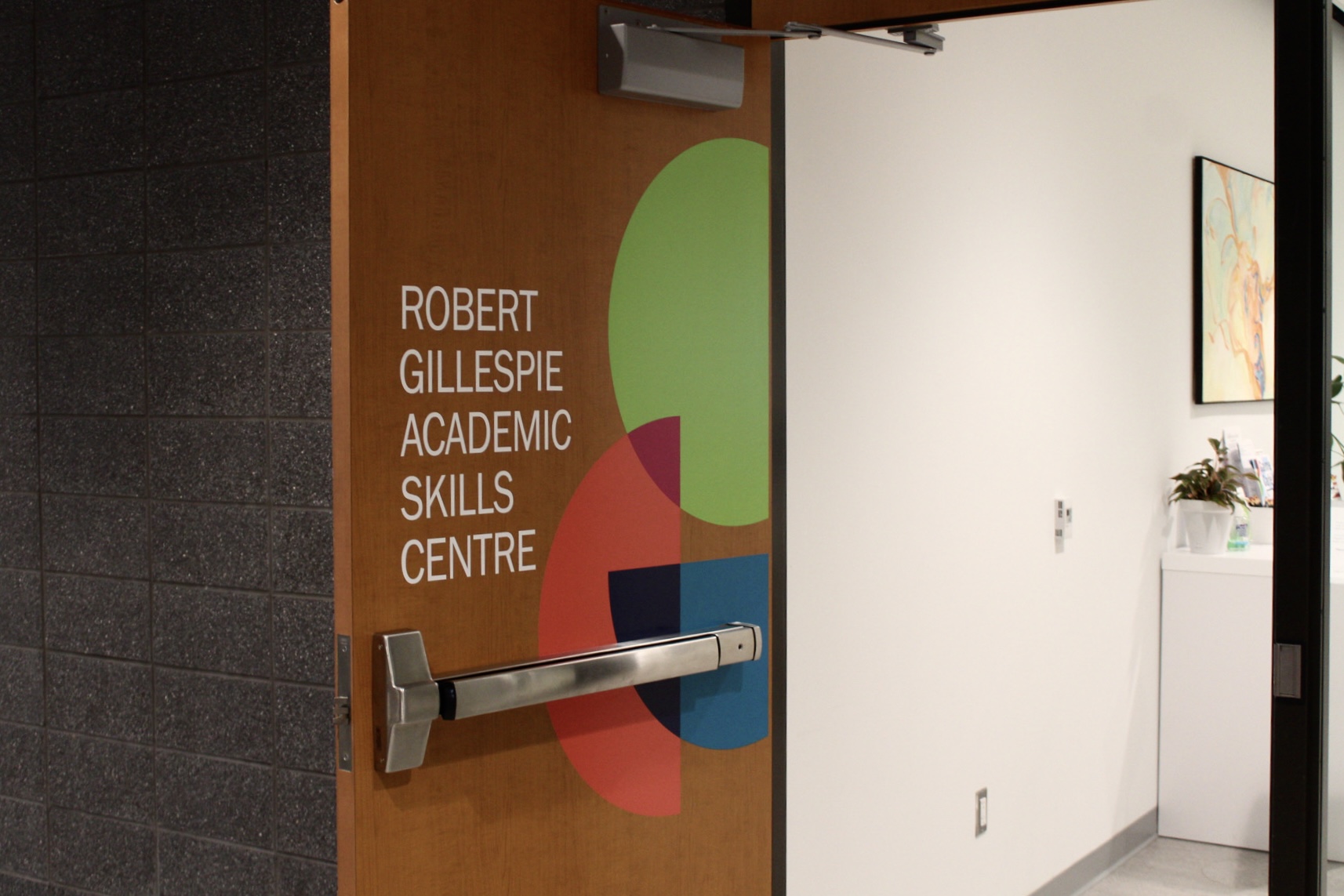Robert Gillespie Academic Skills Centre: A “collaborative and supportive haven” for students
Writing instructors explain the benefits of seeking writing support at UTM.
The University of Toronto Mississauga (UTM) offers a wealth of resources to assist students with their assignments, writing skills, and more. The Robert Gillespie Academic Skills Center (RGASC) is UTM’s main writing and support center and is available for students of all years and programs.
According to UTM’s website, RGASC Director Jordana Garbati describes the centre as “UTM’s hub of activity for academic work.” There are three appointment types that students can sign up for, these include writing, math and numeracy, and study skills.
Study skills appointments are typically 30 minutes long and focus on understanding lectures, course material, and assignments. Writing appointments are one hour long and focus on written works like essays, projects, and homework assignments. Math and numeracy appointments, according to the RGASC’s website, offer help with “pre-calculus, descriptive statistics, logic, and the application of mathematical, statistical and computational approaches.”
Depending on the type of appointment they want, students can book one-on-one sessions, either in-person or on Zoom, with an instructor. They might also receive eTutoring, where students upload a document and an instructor will edit and send it back with feedback.
One of the centre’s most accessible resources is the Writing Studio, where students can drop in from Mondays to Thursdays from 12-1 p.m.. No appointment is required to join—students only need to bring their written work and come with questions.
The Medium interviewed writing instructors Dr. Jack Zaptochny, Dr. Monique Kampherm, Dr. Mark Blaauw-Hara, and Dr. Paul Raymont to get a better sense of the benefits of visiting UTM’s RGASC.
When asked what the purpose of connecting with a writing instructor is, Dr. Zapotochny emphasized that effective writing is necessary to succeed in all academic disciplines. “Writing instructors are a resource alongside writing courses like ISP100 [Writing for University and Beyond] to help students succeed in their programs by understanding communication methods, course material, assignment instructions, and formatting styles.”
He continued, “Writing at the university level is an adjustment from the writing styles with which many students are more familiar. Writing instructors can help students to understand the expectations of writing in different contexts, and to adjust their approach to sharing ideas in genres like essays, lab reports, and graduate school applications.”
Dr. Zapotochny recognizes that writing is a complex process for many. “Writing is a very imperfect process in which our ideas never translate exactly into the words we choose, and our audience’s perception adds a further layer of complexity. Meeting with a writing instructor can help people to reflect on how they share ideas and improve the thoroughness and clarity of their communication in academic, creative, and professional writing.”
Dr. Kampherm provided insight into how these sessions function. She stated, “In our dynamic drop-in Writing Studio environment at the RGASC, students find a collaborative and supportive haven for their writing projects. Writing instructors visit with each student, address a writing question or two, and offer insight [into] select written passages. The RGASC Writing Studio is a vibrant space where each student gains tailored writing guidance.”
When asked about how the drop-ins differ from regular appointments, Dr. Raymont responded, “In the studio, there isn’t as much time to conduct a fuller exploration of the student’s project so there’s a greater focus on identifying [their] primary concern or question about their writing. In responding to a question, we try to provide more focused suggestions relevant to the student’s immediate concerns.” Dr. Raymont stated that the studio can be better than an appointment for specific questions such as those concerned about citations or formatting.
The centre has also started course-specific drop-in sessions known as Dedicated Drop-Ins (DDI’s). Dr. Blaauw-Hara stated that for these sessions, “course instructors share their writing-intensive assignments with the RGASC. Then, if a DDI is coming up, we can pull up the assignment the students are working on and familiarize ourselves with it. We’re not the same thing as a TA in the course—we don’t have the content knowledge of the course, and we obviously won’t be grading the assignment, nor is it a ‘fix-it service’ where the student hands us an essay and we make it perfect.”
The RGASC not only helps students with their work but guides them in developing their writing skills. Dr. Blaauw-Hara stated, “We talk through their writing choices and help them make decisions about their own writing, and since we are writing experts, I think we make good suggestions.” Dr. Blaauw-Hara went on to discuss other advantages, “We, as instructors have time to familiarize ourselves with the course materials ahead of time, so we can probably offer more targeted feedback since the assignments aren’t new to us.”
Staff Writer (Volume 49 & 50) — Yusuf is in his fourth year completing a double major in English and Cinema Studies and a minor in History of Religions. He first joined The Medium in 2022 when he sought to get involved in the on-campus community. He has developed strong writing skills throughout the experience and enjoys learning about new topics he wouldn’t know about otherwise. You can connect with Yusuf on LinkedIn.


